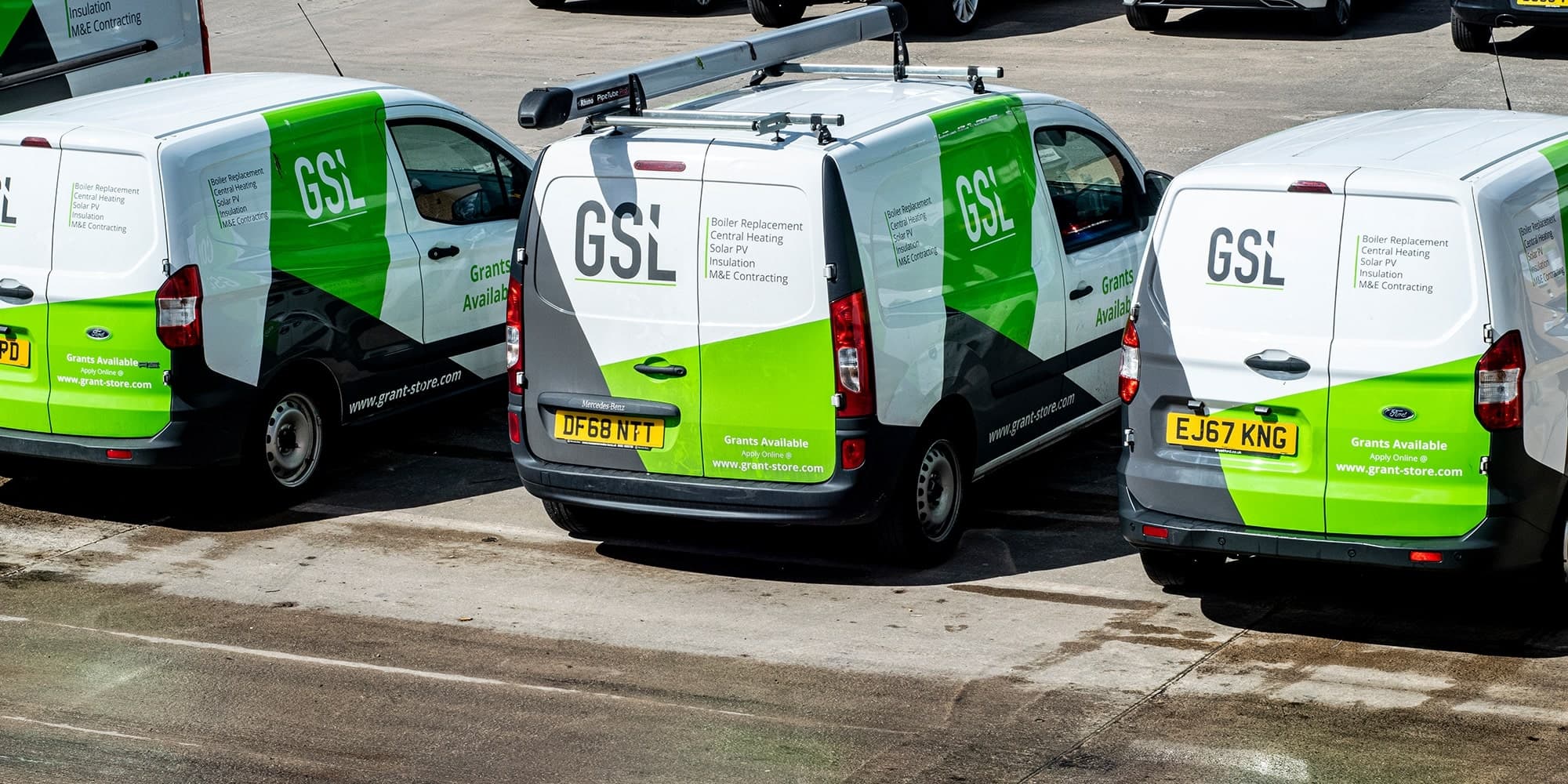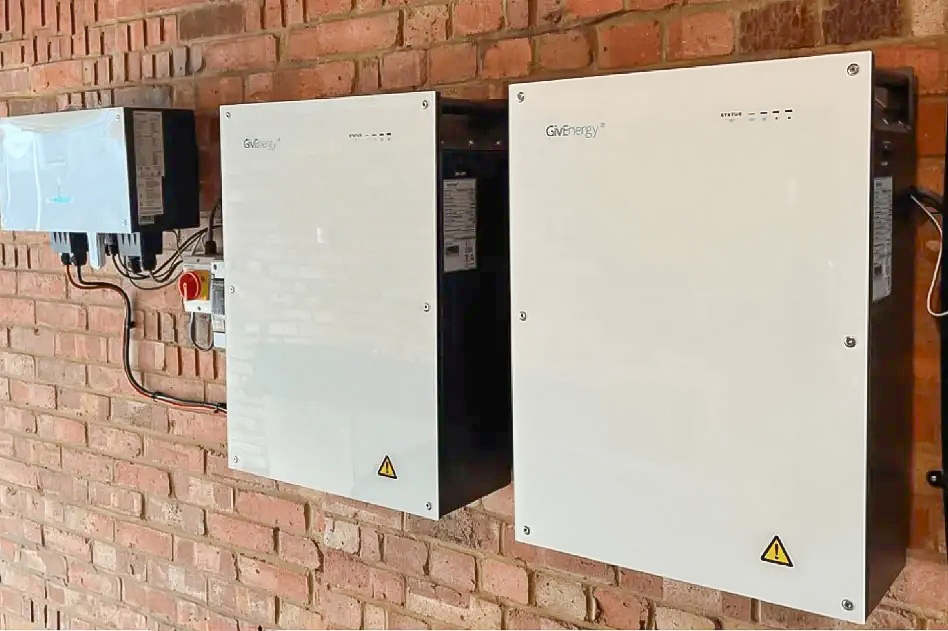June 9th, 2025
Solar water heating vs solar PV: What’s right for you?
Written by: Gareth Whitehill
News
Do you have solar panels, or are you thinking about getting them? A solar battery can help you make the most of your solar electricity. Instead of sending your excess energy back to the grid, a battery lets you store it for later, cutting your electricity bills and giving you more control over your power.
But with so many options, it’s easy to wonder: ‘What size solar battery do I need?’
Go too small, and you won’t have enough stored energy for when you need it. Go too big, and you could end up with a battery storage system that costs more than it saves.
Let’s break it down and find the right solar battery capacity for your home.
Key takeaways
A well-sized battery depends on three key things:
The best place to start is your energy usage. Most UK homes use between 6 kWh and 10 kWh of electricity per day. Still, your daily electricity consumption depends on things like heating, cooking, and whether you have high-energy appliances like an air conditioner or heat pumps.
Got a smart meter? Then, it’s even easier to track your electricity usage. You can see how much solar electricity you use during daylight hours (while your solar panels are generating power) and how much you need at night. That’s super important for working out what battery storage capacity is right for you.
An easy way to calculate the right kWh battery size is:
For example, if you use 8 kWh of electricity per day and your solar panels generate 5 kWh of excess energy, a 5 kWh battery could be a good fit.
Already have a solar system? Use our solar battery calculator to find the best storage option. Try it now!
Not all solar batteries are the same. Factors like usable capacity, the types of battery, and storage capacity can affect how well they work for your home. Here’s what you need to know before choosing the right one.
A battery storage system isn’t just about size – it’s about usable capacity. Some batteries store more energy than you can actually use. For example, a 10 kWh battery might only have 9 kWh of usable capacity because a portion is reserved to extend battery life.
Most home solar batteries are lithium-ion, which last longer and charge more efficiently than lead-acid batteries. They also have a higher storage capacity in a smaller physical size. While lead-acid options are cheaper, they take up more space and have a shorter battery life.
Here are some important things to keep in mind when matching the size of your solar battery to your needs and budget:
If you’re staying connected to grid electricity, a smaller solar battery storage system (4–8 kWh) could be enough to cut your energy bills without spending too much upfront. To be completely off-grid, you’ll need a much bigger battery storage capacity to get through the darker winter months. You’ll also need a system with an Emergency Power Supply (EPS) switch that can operate in Island Mode. Without this, your solar system won’t work during a power cut.
Electricity is more expensive at peak times. A solar battery lets you avoid using grid electricity when rates are high. If your energy provider charges different rates throughout the day, a well-sized battery can help you store cheap solar power and use it when prices go up.
A solar battery helps you use more of your own solar energy, lowering your energy costs.
But the savings depend on:
A battery storage system that matches your energy needs will give you the best return on investment.
Oversized batteries cost more and may not always be worth it. If your solar array doesn’t generate enough excess electricity to charge a large battery, you won’t see the full benefit. On the other hand, the minimum battery capacity might not be enough to power your home at night, so you’ll still rely on grid electricity.
Beyond capacity, practical factors like installation space and lifespan affect whether a battery is right for your home.
The right solar battery capacity helps you cut electricity bills and use more of your own solar power. Not sure what size battery you need? Our UK solar panel installers can help you choose the best system to cut your energy bills and make the most of your solar power. Get in touch today.
June 9th, 2025
Solar water heating vs solar PV: What’s right for you?
Written by: Gareth Whitehill
News
May 9th, 2025
Solar panel installation: Step-by-step guide for UK homes & businesses
Written by: Gareth Whitehill
News
April 9th, 2025
Are solar batteries worth it in the UK?
Written by: Gareth Whitehill
News
April 9th, 2025
What size solar battery do I need?
Written by: Gareth Whitehill
News
January 20th, 2025
Heat pumps vs. traditional heating: Which is right for your home?
Written by: Gareth Whitehill
Heat Pumps
January 13th, 2025
Do heat pumps work well in older homes?
Written by: Gareth Whitehill
Heat Pumps
January 6th, 2025
How do air source heat pumps work?
Written by: Gareth Whitehill
Heat Pumps
December 30th, 2024
Are air source heat pumps worth it in the UK climate?
Written by: Gareth Whitehill
News
December 23rd, 2024
Why are heat pumps taking over UK homes?
Written by: Gareth Whitehill
Heat Pumps
December 16th, 2024
Are heat pumps suitable for smaller homes?
Written by: Gareth Whitehill
Heat Pumps
September 25th, 2024
Grant Store are official sponsors of Chorley FC!
Written by: Gareth Whitehill
News
August 30th, 2024
Grant Store is an official Octopus Trusted Partner!
Written by: Gareth Whitehill
News
August 1st, 2024
How green is solar energy?
Written by: Gareth Whitehill
Solar
July 30th, 2024
How to insulate an old house
Written by: Gareth Whitehill
News
July 29th, 2024
What’s Involved in an Air Source Heat Pump Installation?
Written by: Gareth Whitehill
Heat Pumps
July 28th, 2024
A complete guide to heating water with solar power
Written by: Gareth Whitehill
Solar
July 25th, 2024
How To Make the Most Out of ECO4 Funding
Written by: Gareth Whitehill
News
July 23rd, 2024
Are UK homes getting any greener?
Written by: Gareth Whitehill
News
June 27th, 2024
Why should you choose an MCS installer for your heat pump project?
Written by: Gareth Whitehill
Heat Pumps
June 27th, 2024
When does ECO4 end, and what happens next?
Written by: Gareth Whitehill
News
June 11th, 2024
Exploring Energy Grants for Pensioners: A Guide to Lowering Your Energy Costs
Written by: Gareth Whitehill
News
June 11th, 2024
Do air source heat pumps work well with solar panels?
Written by: Gareth Whitehill
Heat Pumps
June 11th, 2024
Your Guide to Understanding Energy Performance Certificates (EPCs)
Written by: Gareth Whitehill
News
June 11th, 2024
What energy grants can I get on Universal Credit?
Written by: Gareth Whitehill
News
June 1st, 2024
Who qualifies for a boiler grant in the UK?
Written by: Gareth Whitehill
News
May 22nd, 2024
Is the UK Government Planning to Ban Gas Energy?
Written by: Gareth Whitehill
News
April 25th, 2024
Your Complete Guide To Off-Gas Property Grants in the UK
Written by: Gareth Whitehill
News
April 24th, 2024
What are electric storage heaters?
Written by: Gareth Whitehill
News
April 23rd, 2024
How To Improve Your Home’s EPC Rating: A Guide to Boosting Efficiency and Reducing Costs
Written by: Gareth Whitehill
News
April 23rd, 2024
What is the ECO Scheme, and how can it help me?
Written by: Gareth Whitehill
News
April 23rd, 2024
How to apply for the ECO4 Grant: Everything you need to know
Written by: Gareth Whitehill
News
April 18th, 2024
The Complete Guide to Heat Pumps: Benefits, Costs, Savings, and Efficiency
Written by: Gareth Whitehill
Heat Pumps
March 13th, 2024
What size solar PV system do I need?
Written by: Gareth Whitehill
Solar
February 27th, 2024
What grants are available for energy-saving?
Written by: Gareth Whitehill
News
November 24th, 2023
How Many Solar Panels Do I Need?
Written by: Gareth Whitehill
Solar
November 23rd, 2023
How Much Money Do Solar Panels Save?
Written by: Gareth Whitehill
Solar
November 22nd, 2023
How Are Solar Panels Made?
Written by: Gareth Whitehill
News
November 22nd, 2023
Do you need planning permission for solar panels?
Written by: Gareth Whitehill
News
November 22nd, 2023
How Much Do Solar Panels Cost?
Written by: Gareth Whitehill
News
November 22nd, 2023
How Do Solar Panels Work?
Written by: Gareth Whitehill
News
November 20th, 2023
Smart Export Guarantee Rates 2024
Written by: Gareth Whitehill
News
November 20th, 2023
Can I Add a Battery to my Solar System?
Written by: Gareth Whitehill
News
November 20th, 2023
How Do You Store Solar Energy?
Written by: Gareth Whitehill
News
October 3rd, 2023
Solar panels: are they worth the cost?
Written by: Gareth Whitehill
News
September 19th, 2023
How efficient are solar panels?
Written by: Gareth Whitehill
News
September 19th, 2023
Do solar panels boost home value?
Written by: Gareth Whitehill
News
September 19th, 2023
What are the pros and cons of solar panels?
Written by: Gareth Whitehill
News
Not sure which energy-saving solution is right for your home? Or do you have questions about grant eligibility? Our team has the answers. Give us a call and we'll help you figure everything out.
Call us now on:
01942 918 844
"*" indicates required fields
